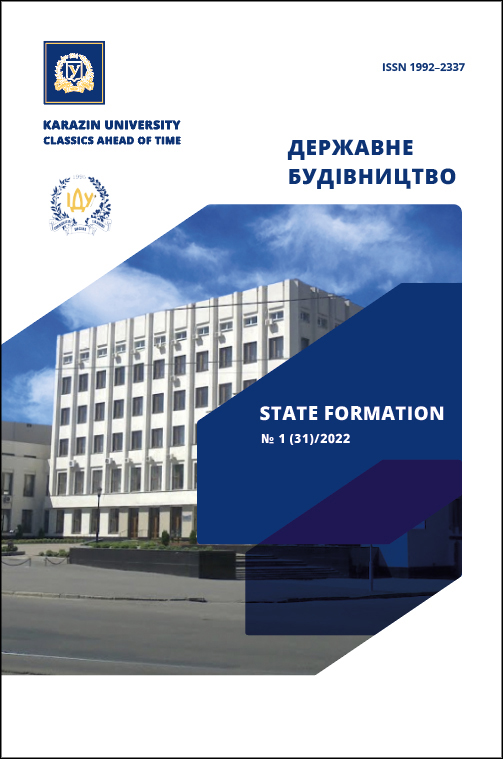PECULIARITIES OF PROTECTING THE REPUTATION AND HONOR OF PUBLIC FIGURES: HUNGARY EXPERIENCE
Abstract
Paper analyzes conceptual approaches to understanding the concept of defamation, its legal regulation in the European legal field. The changes in the Hungarian legislation regarding defamation and the responsibility of citizens for its commission in relation to public figures are highlighted. The issues of reputation protection and protection against slander are especially relevant in the conditions of public administration digitalization.
The purpose of the paper was to study the problematic issues of protecting the reputation and honor of public figures in modern conditions (based on the example of Hungary). The periods and features of the reforms regarding the provision of protection against defamation in the public sphere have been studied. Their disadvantages and advantages are analyzed. Attention is focused on a comparative review of certain issues related to the protection of the reputation and honor of public figures in criminal and civil legislation. In the legislation of Hungary, provisions relating to the establishment of basic rights and freedoms, as well as their guarantees, received their specificity during the long path of reform. The result was the formation of
its own specificity, which significantly distinguishes it from similar provisions of other European states. The norms of the Constitution regarding basic human rights and freedoms attract the attention of scientists as they reflect the most modern social practices and threats in this area. This was the reason for their wide discussion and criticism in professional circles.
It is proven that the formation of quality mechanism for regulating defamation in the activities of public figures in Ukraine should take place only on the basis of balancing the strengths and weaknesses of the identified defamation protection systems, taking into account the peculiarities of the Ukrainian mentality.
It is emphasized that when considering cases on the protection of the reputation and dignity of public figures, it is necessary to take into account two key circumstances: the degree of public interest in the disseminated information and the degree of person's publicity about whom the information is disseminated.
Downloads
References
Hromovyi,O. (2021). Zakhyst reputatsiipublichnykh osib: praktyka ukrainskykh sudiv i Yevropeiskoho sudu z prav liudyny[Protecting the reputation of public figures: the practice of Ukrainian courts and the European Court of Human Rights].Yurydychna firma «GENTLS». https://web-fix.org/практичний-досвід-репутації-публічних-осіб-прак/[in Ukrainian].
Popovych,T.P. (2018). Konstytutsiinyi riven zakriplennia prav i svobod liudyny (dosvid Polshchi ta Uhorshchyny[Constitutional level of enshrining human rights and freedoms (experience of Poland and Hungary)].Naukovyi visnyk Uzhhorodskoho natsionalnoho universytetu. Seriia Pravo, vol.53, 1, 61–65[in Ukrainian].
Romanova,A.Ye. Cherniavskyi,P.V. and Sokolova,I.O. (2021). Vidpovidalnist za naklep (dyfamatsiiu) v Ukraini ta krainakh svitu[Liability for slander (defamation) in Ukraine and in countries around the world].Aktualni problemy derzhavy i prava,vol.90,145–152. Odesa: Helvetyka. DOI: https://doi.org/10.328837/apdp.v0i90.3219 [in Ukrainian].
Veeder,V.V. (1903).The History and Theory of the Law of Defamation. I.Columbia Law Review,vol. 3,no.8,546–573.
Shchur,N.O. (2020).Stanovlennia hromadianskoho suspilstva v konteksti suchasnykh vyklykiv suspilnoho rozvytku.Investytsii: praktyka ta dosvid,no.17–18.URL: http://www.investplan.com.ua/?n=17

